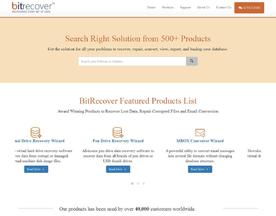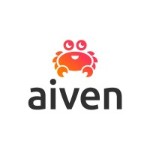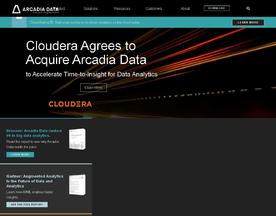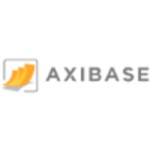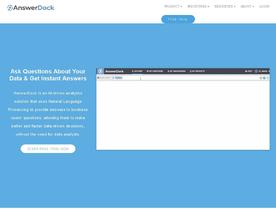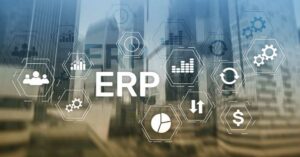In this comprehensive guide, we’ll explore the best big data software available on the market today. We’ll cover everything from what big data software is and its benefits, to key features, costs, and the top five providers. By the end of this post, you’ll have a solid understanding of which big data software is best for your needs, as well as actionable advice to help you make the right choice. Let’s dive in!
Best Big Data Software List

What is Big Data Software
Big data software refers to tools and platforms designed to store, process, analyze, and visualize large and complex datasets. These big data analytics software solutions can handle structured and unstructured data, enabling organizations to gain insights, make data-driven decisions, and optimize their operations.
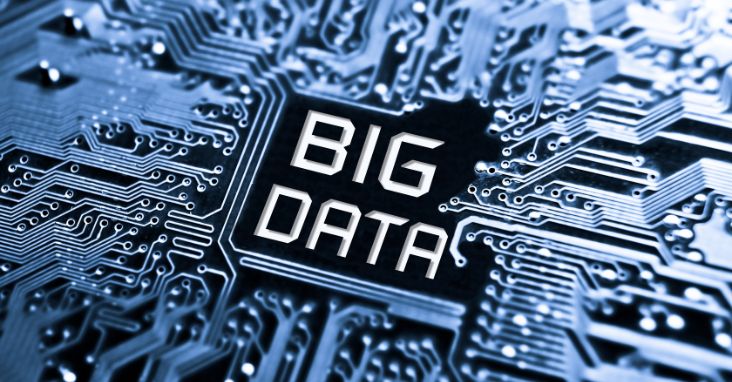
Benefits of Big Data Software
Scalability
Big data software can scale horizontally or vertically, ensuring your organization can handle increasing data volumes and processing workloads.
Real-time Analytics
Big data software enables organizations to perform real-time predictive analytics, allowing them to respond faster to emerging trends, customer demands, or operational issues.
Enhanced Decision Making
By providing deep insights into large and complex datasets, big data software empowers organizations to make data-driven decisions, ultimately improving business performance.
Data Security and Compliance
Big data software often includes features to ensure data security and compliance with regulations, reducing the risk of data breaches and fines.

Big Data Software Key Features
Distributed Storage and Processing
Big data software can distribute storage and processing across multiple nodes or clusters, improving performance and fault tolerance.
Data Integration
Big data software integrates with various big data tools and sources, making it easy to ingest, cleanse, and transform data for analysis.
Machine Learning and Artificial Intelligence
Big data software often includes machine learning and AI capabilities, enabling organizations to discover patterns, predict outcomes, and automate decision-making.
Data Visualization
Big data software provides powerful visualization data analytics tools to help users explore, understand, and communicate complex data insights.

Factors to Consider when Choosing Big Data Software
Scalability and Performance
Consider the scalability and performance of the software to ensure it can handle your organization’s growing data needs.
Ease of Use
Choose software with an intuitive interface and easy-to-use features to streamline your organization’s data workflows.
Integration Capabilities
Select big data software that integrates with your existing data sources and tools, such as data warehouses, CRM, and ERP systems.
Support and Documentation
Look for software with comprehensive documentation and responsive customer support to ensure a smooth implementation and ongoing success.

Big Data Software Use Case Examples
Retail Company
A retail company can use big data software to analyze customer behavior and preferences, optimizing product offerings and marketing strategies.
Financial Institution
A financial institution can leverage big data software to detect fraudulent transactions and improve risk management processes.
Manufacturing Firm
A manufacturing firm can use big data software to optimize production processes and supply chain operations, reducing costs and improving efficiency.
Healthcare Provider
A healthcare provider can employ big data software to analyze patient data and develop personalized treatment plans.
Government Agency
A government agency can use big data software to identify trends and correlations in public data, informing policy decisions and resource allocation.
Potential Big Data Software Problems
Complexity
Implementing big data software can be complex and require significant resources, such as time and expertise, to set up and manage.
Data Privacy Concerns
Handling sensitive data with big data software may raise privacy concerns and require adherence to strict data protection regulations.
Skills Gap
The effective use of big data software may require skilled professionals, creating challenges for organizations with limited expertise in the field.
Integration Challenges
Integrating big data software with existing systems and data sources can be complicated and time-consuming.

Big Data Software Costs
The costs associated with big data analysis software can vary depending on factors such as licensing, hosting, and support. Additionally, the time and resources required for training staff and maintaining the software should be taken into account.

How We Chose the Best Big Data Software
Selecting the right big data software for your organization can significantly impact your ability to analyze, process, and derive insights from large datasets. With a variety of options available in the big data tool market, it can be challenging to choose the best one for your needs.
To simplify the decision-making process, we’ve conducted extensive research and analysis to identify the top big data analytics software companies in the industry.
Our methodology for selecting the best big data software vendors is based on several key factors. First, we considered the functionality and features offered by each software, including distributed storage and processing, big data analytics tool and integration, machine learning and AI, and data visualization.
Second, we evaluated the user interface and ease of use, as well as the level of customization and integration with other business systems such as big data analytics tools, warehouses, CRM, and ERP systems.
We analyzed customer reviews and feedback on Serchen, as well as G2, and Trustpilot, to gauge user satisfaction and the level of support provided by each vendor. Additionally, we took into account the pricing and affordability of each solution, as well as the level of customer service and support offered.
By considering these factors, we’ve identified the top big data software vendors that offer the most comprehensive, user-friendly, and cost-effective solutions for organizations looking to unlock the power of their data.
Top 5 Big Data Software Providers
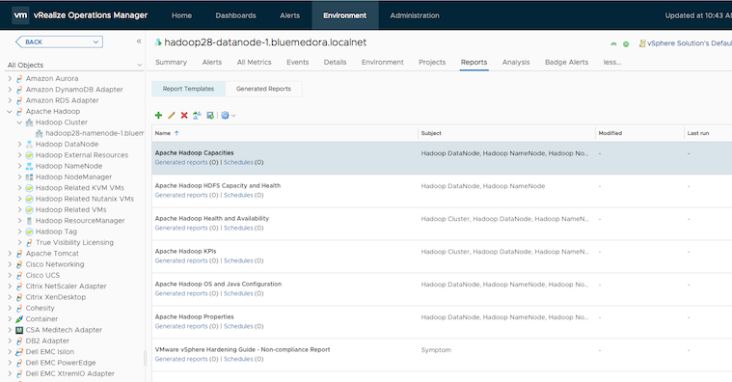
Apache Hadoop
Apache Hadoop is an open-source big data software framework that provides distributed storage and processing capabilities for large datasets. It has become a popular choice for organizations looking to implement big data solutions due to its scalability, flexibility, and affordability. collect data
Pros:
Scalable
Open-source
Large community support
Cons:
Steep learning curve
Complex setup and maintenance
Best Fit: Enterprises with a strong technical team and budget constraints
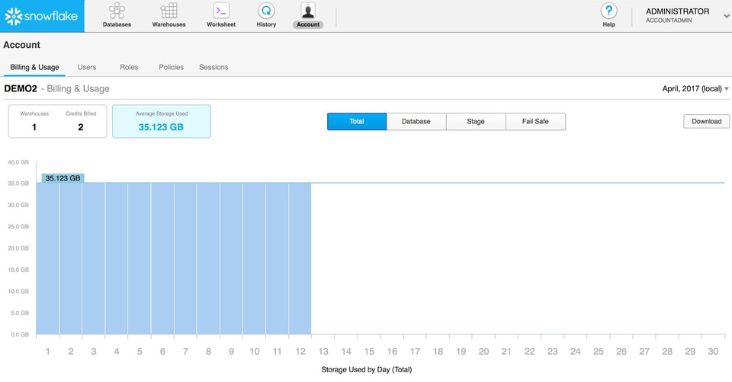
Snowflake
Snowflake is a cloud-based big data platform that offers a highly scalable and flexible solution for organizations seeking to manage, process, and analyze large volumes of data. Snowflake’s unique architecture separates storage, compute, and services, ensuring optimal performance and cost efficiency.
Pros:
Scalable
Easy to use
Strong security features
Cons:
Higher cost
Limited on-premises deployment options
Best Fit: Enterprises looking for a cloud-based big data solution with strong security features
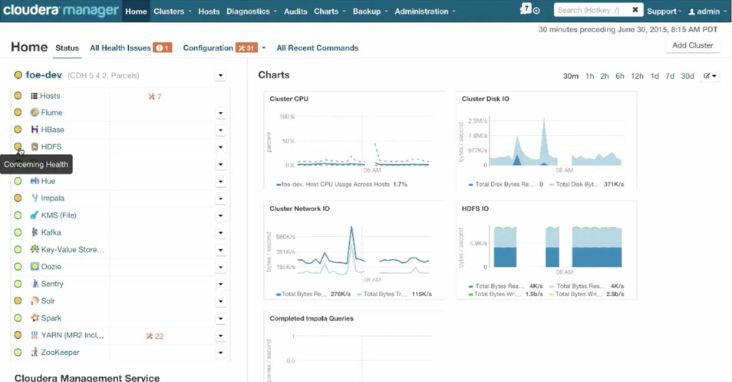
Cloudera
Cloudera offers a comprehensive big data platform that combines the power of Hadoop with advanced analytics and data management tools. Cloudera’s solution is designed to simplify big data workflows, making it easier for organizations to derive insights from their data.
Pros:
Comprehensive solution
Strong security features
Enterprise-grade support
Cons:
Higher cost
Complex setup
Best Fit: Large enterprises with complex data requirements and a strong focus on security
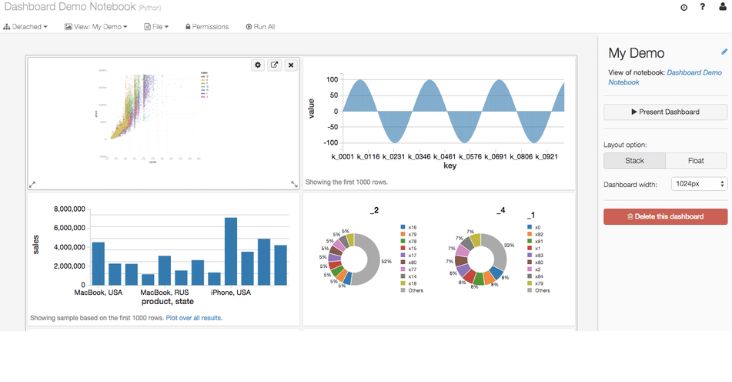
Databricks
Databricks is a unified data analytics platform that combines big data processing, machine learning, and collaborative data science. Built on top of Apache Spark, Databricks offers a highly scalable and performance-driven data scientists solution for organizations looking to harness the power of their data.
Pros:
High performance
Easy collaboration
Strong machine learning capabilities
Cons:
Higher cost
Limited on-premises deployment options
Best Fit: Enterprises focused on data science, machine learning, and advanced analytics
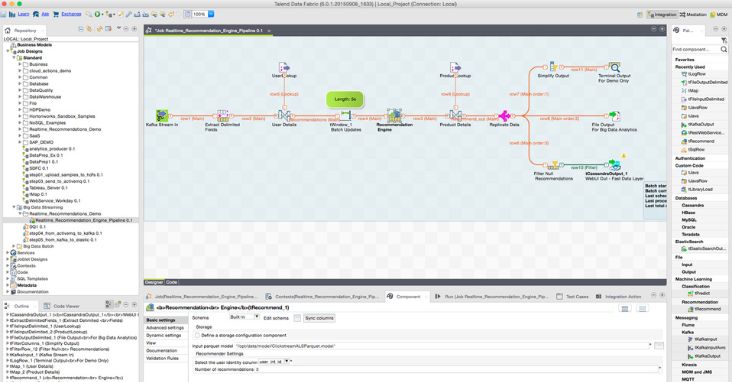
Talend
Talend is a big data integration and management platform that offers a wide range of tools for data ingestion, transformation, and processing. With its user-friendly interface and extensive integration capabilities for multiple data sources, Talend simplifies the process of managing and analyzing large datasets.
Pros:
User-friendly interface
Extensive integration capabilities
Cost-effective
Cons:
Limited advanced analytics features
May require additional software for visualization
Best Fit: Small to medium-sized businesses looking for a cost-effective big data solution with strong integration capabilities

Big Data Software FAQ
What is the difference between big data software and traditional data management software?
Big data analytics software is specifically designed to handle large and complex datasets, while traditional data management software is more suited for smaller and structured datasets.
Do I need big data software if I have a small business?
Depending on your data needs and growth plans, investing in big data software may still be beneficial for small businesses looking to gain insights from their own data sets.
What types of data can big data software handle?
Big data software can handle both structured and unstructured data, including text, images, videos, and sensor data.
Is big data software only for large enterprises?
No, big data software can be beneficial for businesses of all sizes looking to unlock the value of their data.
How can I ensure my data is secure when using big data software?
Choose big data software with strong security features, such as encryption, access control, and auditing capabilities. Additionally, ensure your organization follows best practices for data security and complies with relevant regulations.
Can big data software help with data compliance?
Yes, many big data software solutions include features to help organizations comply with data protection regulations, such as data masking, encryption, and data access control.
What are the main challenges of implementing big data software?
The main challenges of implementing big data software include complexity, integration with existing systems, and the need for skilled professionals to manage and analyze the raw data.
How can I evaluate the performance of big data software?
You can evaluate the performance of big data software by considering factors such as scalability, processing speed, and ease of use.
Can I use big data software in the cloud?
Yes, many big data software solutions offer cloud-based deployment options, allowing organizations to leverage the flexibility, scalability, and cost efficiency of cloud computing.
How much does big data software cost?
The cost of big data analysis software varies depending on factors such as licensing, hosting, and support. Additionally, the time and resources required for training staff and maintaining the software should be taken into account.

Conclusion
In conclusion, big data software is an essential tool for organizations looking to unlock the power of their data. By selecting the right solution for your business intelligence needs, you can gain valuable insights, improve decision-making, and drive business success. To find even more software alternatives, we recommend visiting Serchen to explore user reviews and ratings for various big data software providers.



